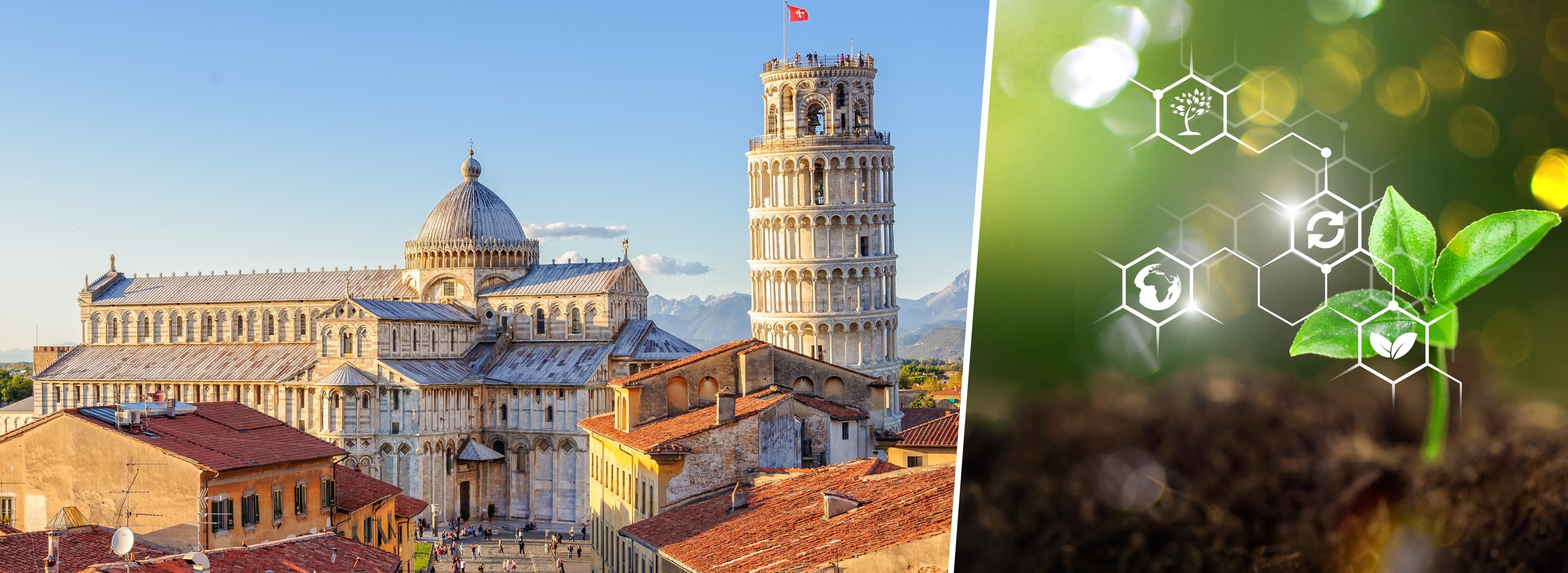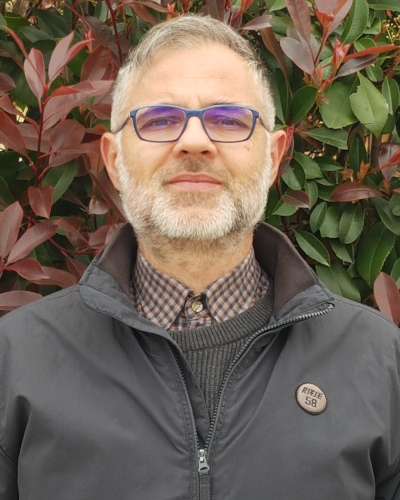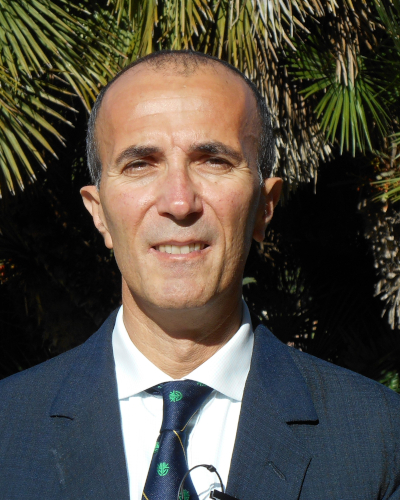SPECIAL SESSION #3
Advances in Plant Phenotyping in Agriculture
ORGANIZED BY
Giuseppe Montanaro
University of Basilicata, Italy
Francesco Cellini
Metapontum Agrobios Research Center - ALSIA, Italy
Francesco Loreto
University of Naples Federico II, Italy
Roland Pieruschka
Forschungszentrum Jülich, Germany
ABSTRACT
Plant phenotyping is continuously expanding within the plant science and agricultural domains, supported by fast technological developments. Plant phenomics is mostly based on non-invasive image characterization of plant functional and structural traits. This special session, organized under the patronage of PhenItaly – the Italian national initiative on plant phenotyping, and Emphasis, the European Strategic Research Infastructure on Plant Phenomics, will illustrate the latest technological advances in the various plant phenotyping areas (e.g., field and controlled robotized, remote, proximal, platforms) and scales (from plant organ to landscape). Research related to plant-environment interaction, plant breeding to face environmental constraints (e.g., drought, salinity, pathogens) or crop performance improvement, will also be under the scope of this section. The study of the efficacy of natural and external inputs (i.e. biostimulants, biofertilizers, etc..) by affordable phenotyping approaches will also be treated. Furthermore, highlights about the integration of data analytics and sensor-based technologies to capture plant traits, will be discussed.
TOPICS
We welcome contributions including the following topics:
- Sensors, robotics and automation for image- and sensor- based plant-phenotyping
- Standardization of plant phenotyping methods
- Phenotyping for biotic and abiotic stress
- Plant-phenotyping for high-throughput screening
- Crop performance oriented plant-phenotyping
- Phenotyping for increasing resource use efficiency
- Lean and affordable phenotyping
ABOUT THE ORGANIZERS
Giuseppe Montanaro, is Associate Professor at the University of Basilicata. He studied the external (e.g. light, VPD, wind) and internal (e.g. secondary metabolites, xylem hydraulic resistance) plant factors in determining water flow and accumulation of nutrients. He focused on plant water relations in fruit trees and grapevines under environmental constraints; he explored the efficiency of the photosynthetic machinery in trees and vines experiencing drought stress (and re-watering), salinity and high irradiance stress (through in vivo fluorescence techniques). He approached plant phenotyping via imaging (e.g., RGB, NIR, 3D_RGB) to study response to the environment (e.g., drought, salinity). He also focused on the image-based phenotyping of some fruit quality traits as combined with artificial intelligence data analytics. His expertise also covers plant-environment interactions, including remedial techniques that increase ecosystem services via improving the structure and function of soil.
Francesco Cellini, is the head of the Agrobios-ALSIA research Centre (Metaponto di Bernalda, IT). He was a pioneer within the international plant-phenotyping community, contributing to starting this research field in Italy and introducing a robotized plant imaging platform. His interests cover plant response and adaptation to the environment, from molecular to physiological scale. Currently he is focusing on the identification of plant phenomics digital traits able to support the recognition of plant-environment interaction through image-based technology. He is actively involved in International Projects aimed (i) at promoting transnational mobility of scientists across plant-phenotyping platforms and (ii) the field exploitation of lab-based outcomes.
Francesco Loreto, is currently Full Professor of plant physiology at the Department of Biology of the University of Naples Federico II and a Research Associate at the National Research Council of Italy (CNR), Institute for Sustainable Plant Protection. Past appointments of Prof. Loreto include: Research Director at CNR (2001-2009); Director of CNR Institute for Plant Protection (2009-2012); and Director of CNR Department of Biology, Agriculture and Food Science (2012-2020) coordinating the activities of nine CNR Institutes and more than 1000 researchers and technologists around Italy. Prof. Loreto coordinates since 2018 the Italian node of Emphasis (Phen-Italy) collecting 14 academic, research and private institutions working on plant phenotyping.
Roland Pieruschka is plant ecophysiologist with experience in phenotyping, plant physiology, ecology, systematics and biogeochemistry. Expert in measuring plant traits on leaf, plant and canopy level. Additional scientific background includes interdisciplinary work with modellers, engineers and chemists. Roland received his PhD at the University of Düsseldorf in Germany in 2015. He did his Postdoc at the Carnegie Institution of Science in Stanford in the USA and works since then at the Forschungszentrum Jülich in Germany as plant phenotyping scientists and research infrastructure manager. Roland has worked in and managed the national German (DPPN), European (EPPN, EPPN2020) Plant Phenotyping Networks, he is a co-founder of the International Plant Phenotyping Network (IPPN), and manager of the ESFRI research infrastructure project EMPHASIS that aims to build a pan-European infrastructure.

















